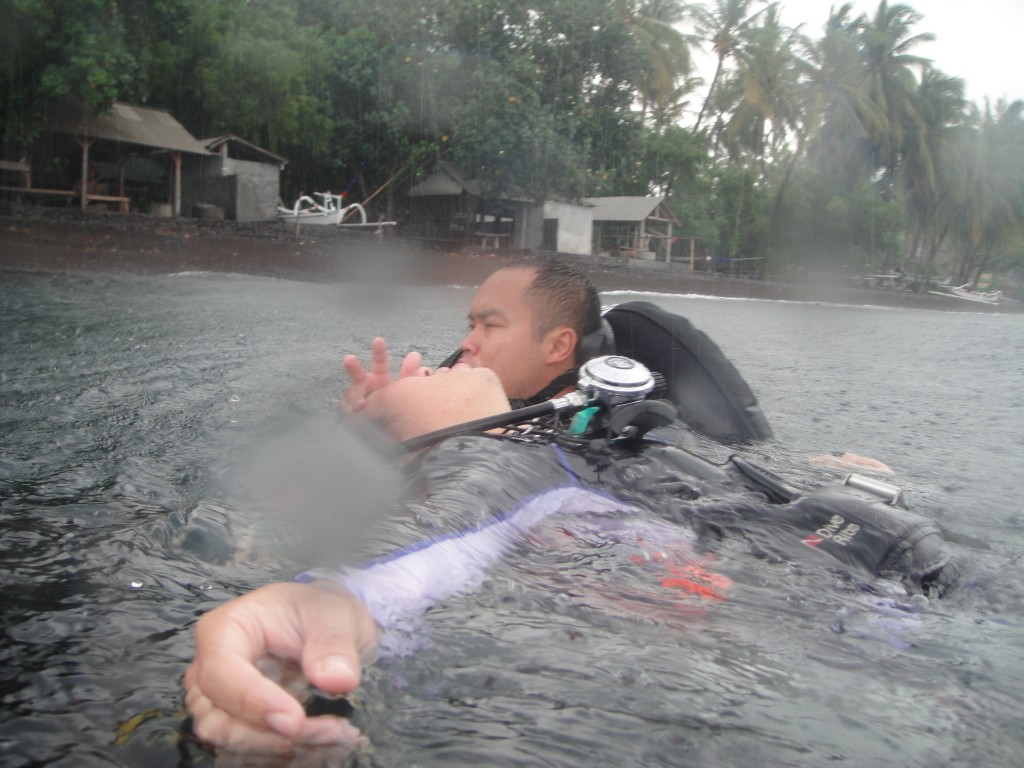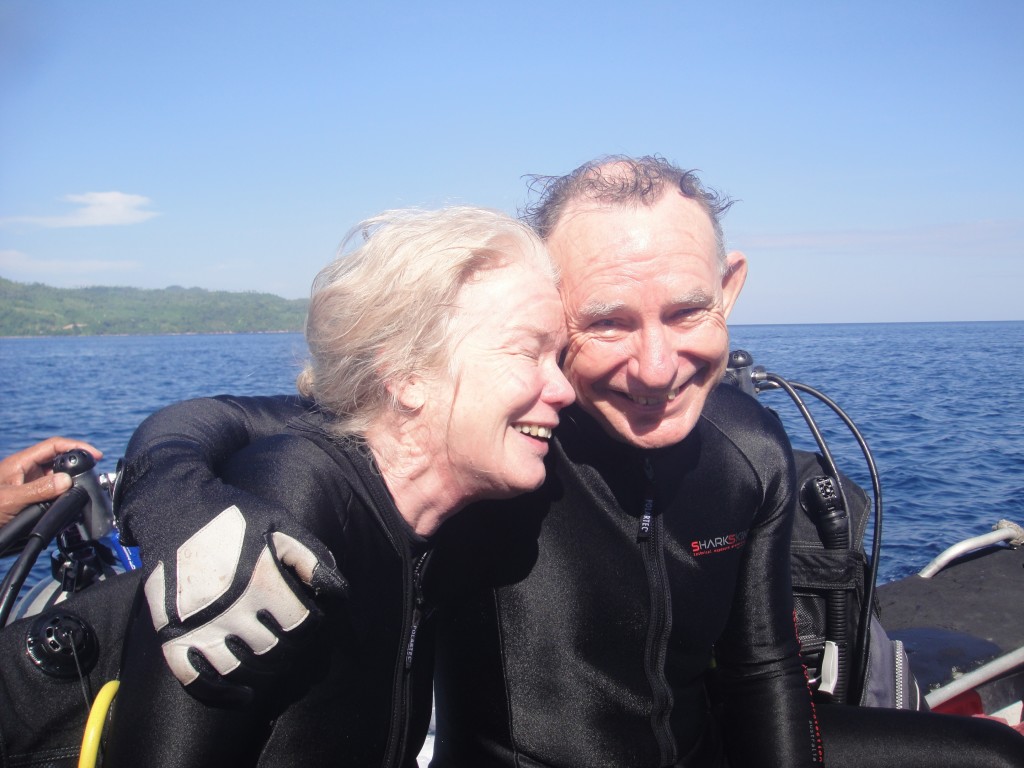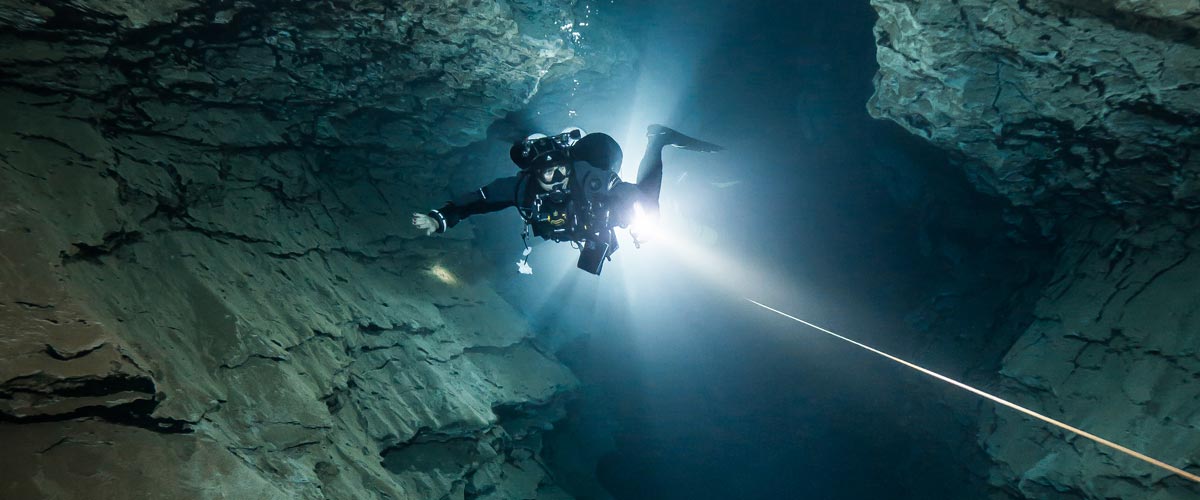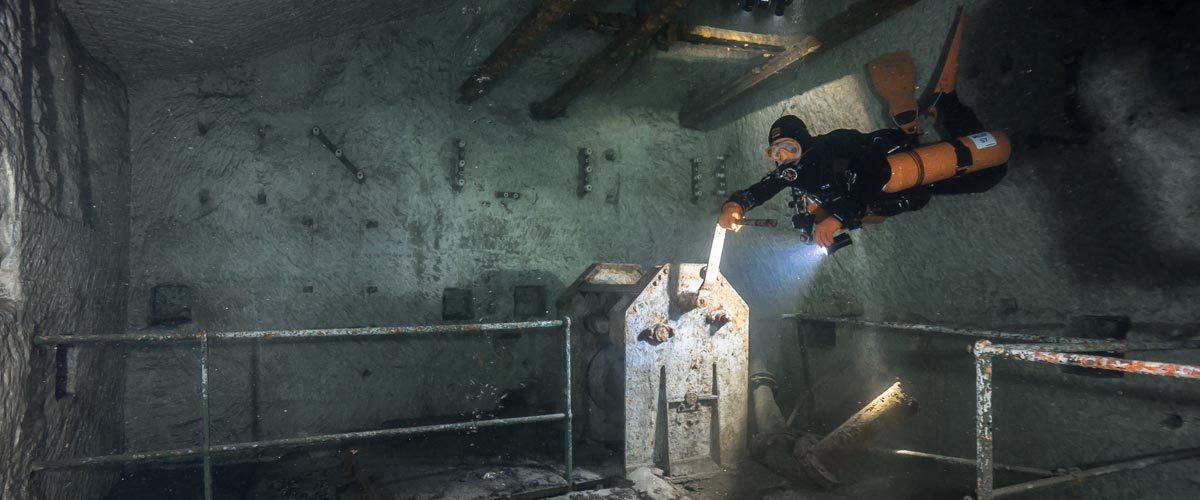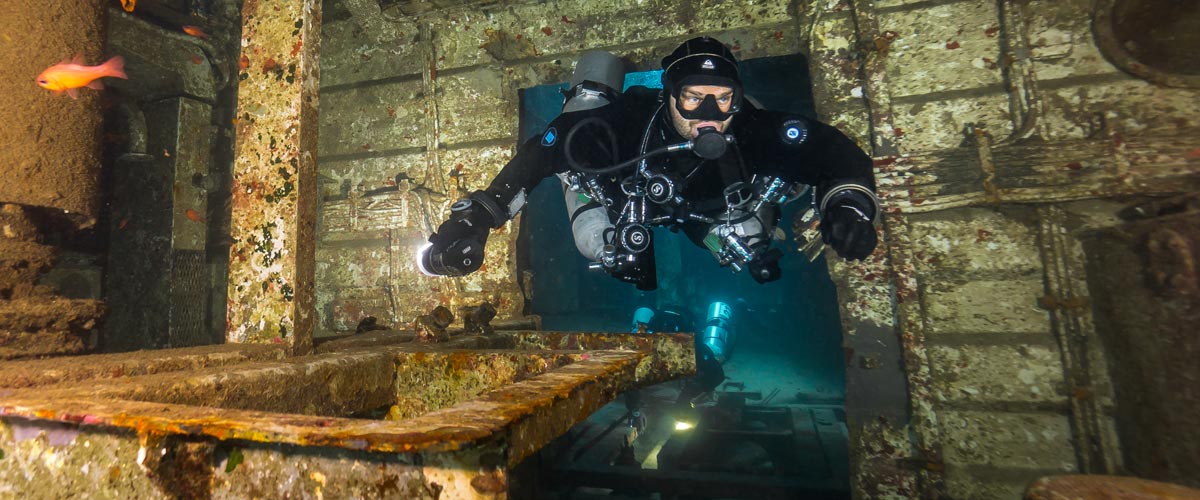Dive Training Blogs
Scuba Professional: Column No. 1
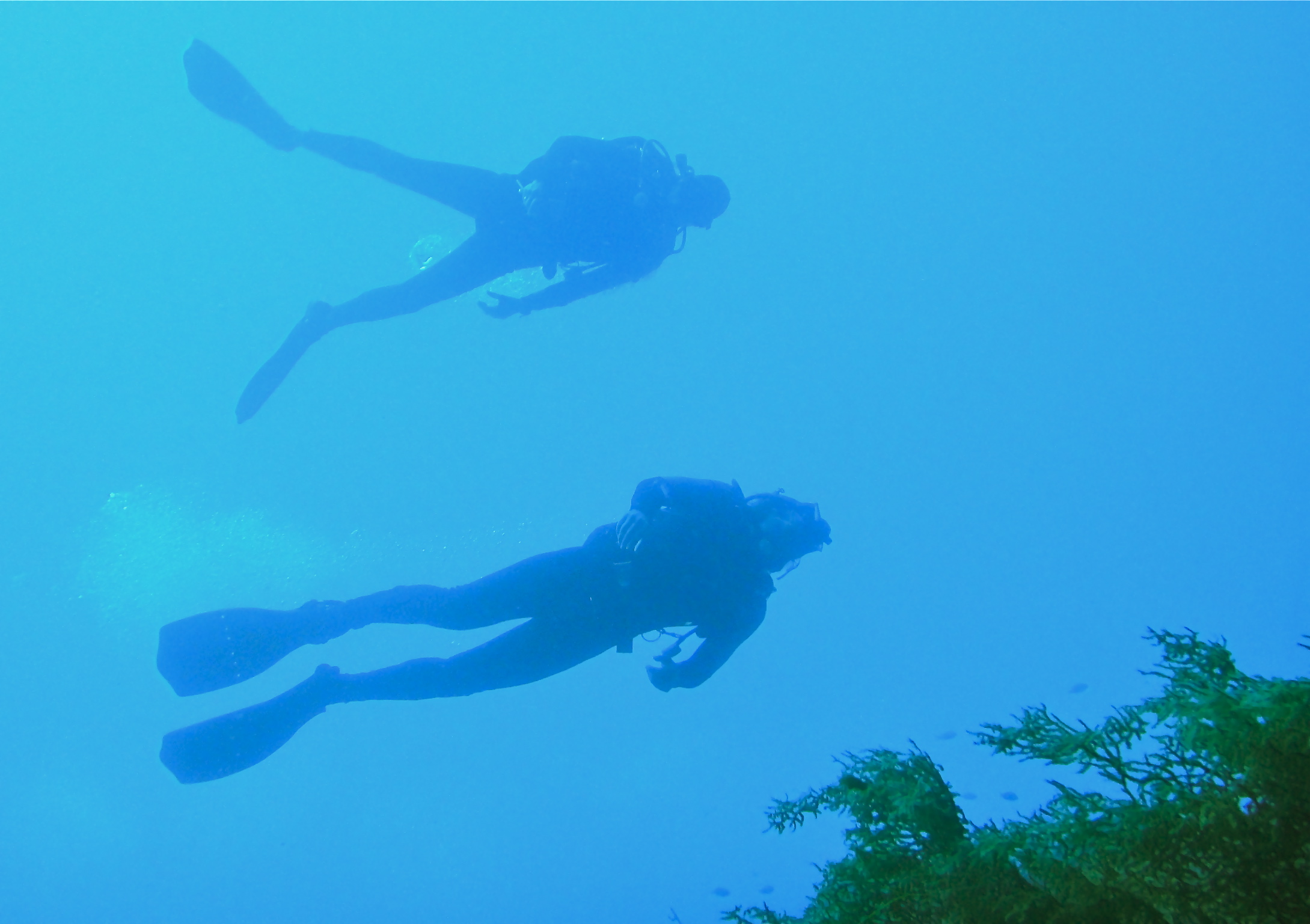
The Buddy System: Smart Idea or Recipe for Disaster?
Are you always safer diving with another person or are you actually better off diving solo sometimes?
The Buddy System
The concept of the buddy system is that a pair of confident divers function as independent members of a two-person team with their shared experience, equipment and air supply making the team stronger than if its individual members were diving alone.
The perfect buddy team share similar interests and have compatible aims. They check each other’s equipment and stay close throughout every dive, adjusting their distance depending on the visibility and water conditions. They discuss and practice what to do in the event of various emergencies, equip themselves accordingly and keep track of each other’s air supply and decompression status as well as their own. They accept full responsibility for their personal safety as well as the additional responsibility for helping their buddy if necessary. Perhaps most importantly of all, they agree that if either of them feels uncomfortable for any reason before or during a dive then they will abandon or immediately abort the dive together. It is hard to argue that this is not a very safe way to dive.
Statistics show that a diver is more likely to come to harm if they are alone than if they are with another diver. Most divers who die diving, die alone. However, a closer examination of incident reports shows that, in many cases, the deceased diver did not actually start the dive on their own. Many dive accidents take place when one buddy has a problem and the team separates or the pair lose each other and continue the dive alone. This suggests that there are flaws in the system.
Flaws in Tuition
These flaws may derive from the way the buddy system is commonly taught. New divers are told that they should never dive alone so if they get into trouble they will always have someone there to help them. Instructors emphasize this aspect of the system in order to reduce anxiety among nervous students.
This is an understandable tactic these days when instructors are under pressure to certify new divers quickly, but it creates false assumptions and expectations. It allows divers an excuse to be dependent on others. It can cause them to panic if they suddenly find themselves alone in the ocean. It may also persuade them to dive in situations where they would not feel comfortable diving if they were on their own.
Instructors know they should be telling divers that they are responsible for their own safety on every dive and should never put themselves in a position where they are not able to survive a dive using their own knowledge and self-rescue skills. Not only that, they should only dive in situations where they are so comfortable in their own abilities that they can, if called upon, also devote their full attention to helping another diver in need. Sadly, there is insufficient time in beginners’ courses these days to bring all divers to this sort of level so these key elements in the concept of the buddy system are left by the wayside.
Flaws in Operation
Problems also arise from dive operators enforcing the buddy system on the unwilling. This produces one of two results. Either both divers deliberately and pointedly ignore each other once they are under water and go their own way or one diver follows the other around, unilaterally ensuring they stay together. Both scenarios create stress and resentment. In fact, the divers would actually be more relaxed, and therefore safer, if the buddy system had never been mentioned.
Conversely, some divers may actually seek out operations that enforce the buddy system because they lack confidence in their self-rescue skills or have been brainwashed in their training with the idea that if they ever enter the water alone they will die. This means that, when they dive, they are effectively entrusting their unwitting companion with total responsibility for their safety. If, as often happens, you have two people diving together with this mind-set, you actually have no-one capable or prepared to take responsibility for anyone’s safety, an excellent recipe for disaster!
When A Buddy is Better
There are definite benefits to diving with someone else. Human beings are social animals; we like to share our experiences and we get emotional security from the company of others. There are also occasions when having a buddy around can be of enormous practical value, for instance when you:
- Run out of air.
- Get entangled in fishing line.
- Become confused or anxious.
- Are badly bitten or stung.
- Suffer a major equipment failure such as a blown hose or o-ring.
When Solo is Safer
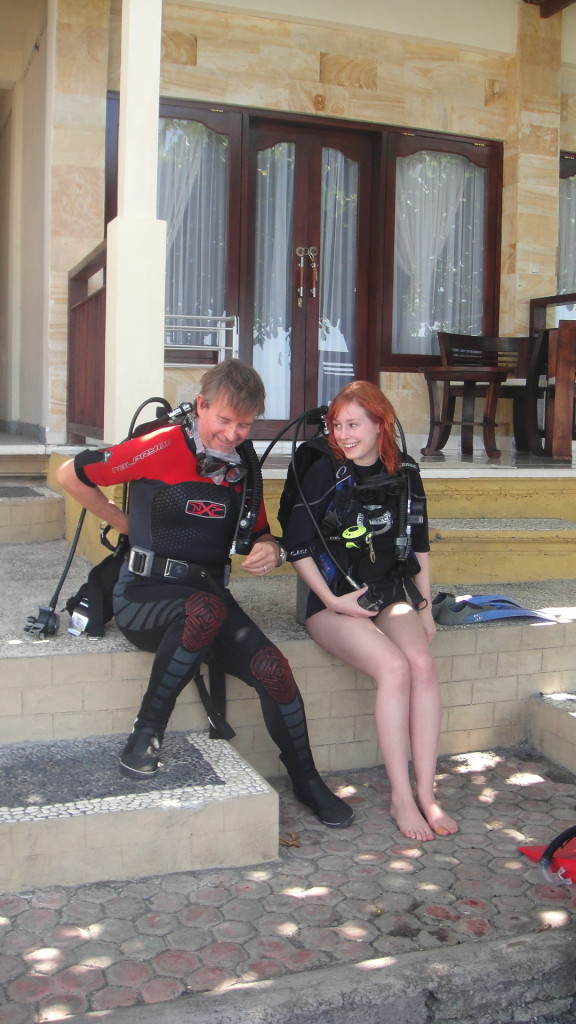 Diving solo is certainly safer if you want to dive a plan that is beyond the experience level of your available buddies. For instance, if you are a Technical Wreck Diver and want to explore inside a shipwreck but none of your dive team has overhead environment training, it is much better to ask other divers to provide support outside the wreck than to take them inside with you.
Diving solo is certainly safer if you want to dive a plan that is beyond the experience level of your available buddies. For instance, if you are a Technical Wreck Diver and want to explore inside a shipwreck but none of your dive team has overhead environment training, it is much better to ask other divers to provide support outside the wreck than to take them inside with you.
However, any dive can be undertaken safely on your own as long as you have the knowledge and experience to anticipate potential problems and you plan your dive and equipment accordingly.
Ask yourself before you decide to do any dive alone:
- Are you under the influence of ego or peer pressure?
- Have you identified all the potential risks?
- Do you have the right equipment to deal with anything that happens?
- Have you practiced what you will do if an emergency strikes?
- Do you have experience of successfully managing stress underwater?
- Do you have the discipline to stay within a dive plan?
- Are you prepared to abort the dive immediately if you feel ill at ease?
If the answer to all of these questions is an emphatic “Yes”, then you can do the dive.
Final Word
The choice as to how you dive is yours. The important thing is to be true to yourself and those with whom you dive. Some training agencies now offer Solo Diving courses and these will certainly be valuable in helping you adopt the right mind-set to diving on your own. When you think about it, however, there should really be no need to have a specific course: every diver course should be teaching self-sufficiency rather than dependency.
********
Read more from Simon in his latest release Scuba Professional – Insights into Sport Diver Training & Operations and his bestselling book Scuba Confidential – An Insider’s Guide to Becoming a Better Diver, both available from Amazon in paperback and e-book versions.
Blogs
Intro to Tech: What is it about?
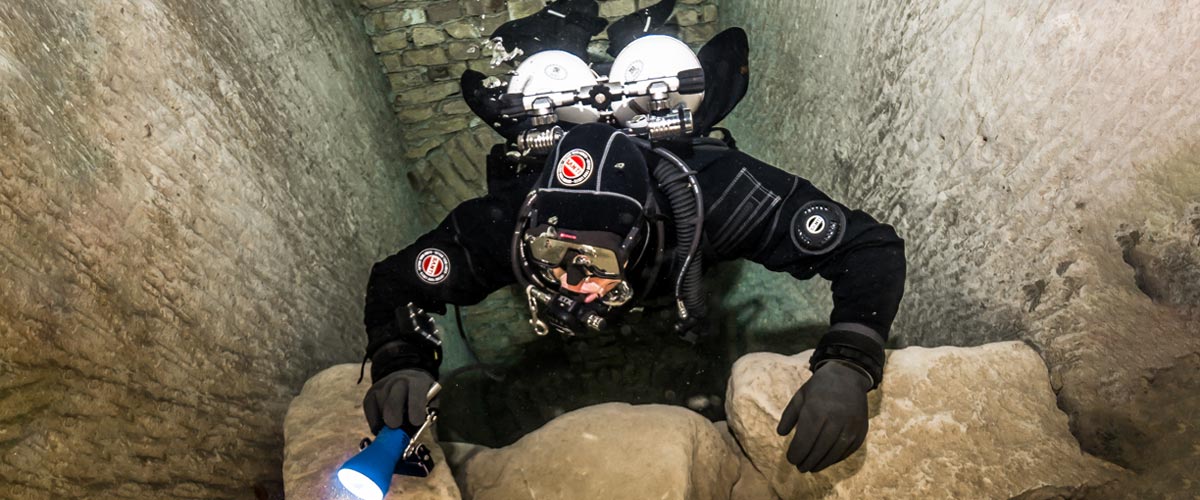
Article by José Pablo Mir
Pictures by Cezary Abramowski
The world of technical diving is exciting. It opens the door to new sites, depths, and bottom times. More importantly, it opens our minds to a new way of planning, facing, and experiencing dives, even those not purely technical.
Becoming a technical diver is a process, and like in other aspects of life, we should find the proper entry point that suits us best based on our knowledge and experience. The Introduction to Technical Diving course from TDI -the world’s largest and most recognized technical diving teaching organization- is the best option for divers who have yet to gain experience in the fundamental aspects of this new practice. The course’s content and its embrace of new techniques and technologies make it possible to acquire a solid foundation to learn and gain experience in this practice properly.
Becoming a technical diver is not something that happens overnight, whether deciding to become one or receiving a certification card stating we are now technical divers. It is a slow process extending farther away than any introductory course. It requires effort and dedication. But it will bring us satisfaction from day one -or two.
It is a matter of mentality
First, we must understand and accept that technical diving, involving greater depths, longer bottom times, exotic gases, virtual or real ceilings, and more, comes with higher levels of risk than the sport diving we have been practicing until now.
Although this discussion usually starts with a warning about risks, as I’ve done in the previous sentence, our practice is not a game of chance.
Technical diving is a rational activity that requires maturity and good judgment, and we will put everything into ensuring that each dive is a successful one -meaning we return from it safe and sound. With this understanding, we will strive to establish a mental attitude more aligned with our practice and its realities.
This new “technical diver” mindset we will develop will lead us to be more cautious in our executions, more analytical in our plans, more rational in our strategies, and more detailed in our procedures.
Experience will keep teaching us to know ourselves better, to keep our anxiety and other emotions under control, and to manage our impulses. Over time, our senses will sharpen, and we will be more attentive to the particulars of the situation we find ourselves in.
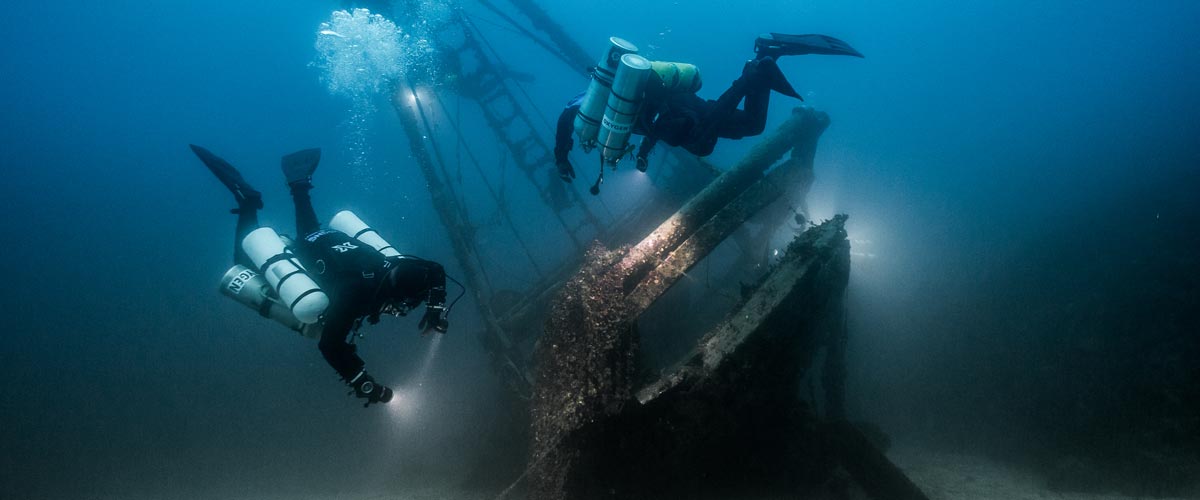
Strategies and procedures
Our strategies, those broad guiding lines tracing the path to follow, from how to approach planning to where, with what, and how we are willing to get there, will be more specific and more practical. Not because they magically become so, but because we will consciously and deliberately frame them that way.
We will establish clear, concise, and realistic procedures. Not only for the undesirable situations that may present themselves but also for those that are part of our dive objectives.
Even though, as technical divers, we often use equipment different from what we were previously accustomed to, it is essential to note that the gear does not make the diver. In a way, we could consider such equipment as the necessary tools to implement what our goal seeks to achieve, according to our strategies and procedures.
Technique plays an important role
We must put our greatest effort into learning and perfecting the different techniques we will be acquiring. Buoyancy, trim, propulsion, cylinder handling, deploying DSMBs and lift bags, valve drills, and more are essential skills we must begin to master to progress in our art. What we cannot do, when we need to do it, can harm us.
Our techniques must be effective and achieve the purpose for which they were devised. But they must also be efficient and require the least resources possible, including the time they take and the effort they demand. Effectiveness and efficiency will prevail over beauty and other considerations that may come to mind, although none of them should be mutually exclusive. A technique executed efficiently and effectively tends to have an inherent beauty.
Refining techniques is a lifelong mission. Some of them will be easy to master from the go; others, on the other hand, will be our life mission and will require many repetitions just to resemble the idea we have in mind of how they should be executed.
We must consider the environment
Our learning, the needs and musts of the practice we engage in, the experience we gradually gain, our strategies and procedures, and even our equipment and tools change with the environment.
Diving in the ocean, everything about us must be suitable for ocean dives. Conditions there rarely emulate those found in a pool, lake, or river. Variable winds and currents, greater depths, visibility conditions, other divers with uncertain skills around us, marine life, maritime traffic, distance from the coast, and many other factors add complexity and uncertainty.
It is never necessary to master the pool on the first day, but planning and aspiring to gradually cope with the ocean’s conditions is essential.
The cost of good training
We are aware that our resources are often scarce in relation to the possibilities of use we could give them if they were not. To a greater or lesser extent, we are part of the economic reality in which we are embedded.
Fortunately, the cost of good technical diver training is not an entry barrier. Comparing training and equipment costs, we see that the former are generally lower. Yes, lower cost for personalized service, essential to our future
performance and safety, than for a series of mass-produced products that are mere, albeit necessary, tools for an end.
The value of good training
The value of the training we received encompasses a range of characteristics, from emotional and methodological to technical and technological. TDI and its Introduction to Technical Diving course offer a deep and modern approach, with a teaching strategy that aims to create thinking divers, not merely obedient ones.
As technical divers, our knowledge is our primary tool. In this type of activity, what we don’t know can harm us.
Is this course optional?
Unfortunately, the fact that this Introduction to Technical Diving course is not a prerequisite for any subsequent training is an invitation to consider it optional. And we all know what usually happens to “optional” under budget constraints.
However, this course should be seen as optional only by those divers who are somehow familiar with the use of technical equipment, who have a mindset more in line with the requirements of this type of diving, who plan and execute the dives the proper “technical” way, who know their gas consumption rate, who are not intimidated by non-decompression tables, who feel comfortable using their dive computers, and know the techniques and have at least an acceptable level of buoyancy, positioning, and propulsion. Those can go straight to a more advanced training course, such as TDI’s Advanced Nitrox.
We must ask ourselves whether or not we are in that group.
Remember our goal: to have fun
Recreational diving is our passion. Jumping into the water carrying heavy equipment and having properly dotted our I’s and crossed our T’s have only one ultimate goal: fun. This is the activity we have chosen as a hobby. We must enjoy it; it must give us pleasure and make us vibrate.
Having a good time is not optional!
Blogs
Four opportunities to go pro in 2024 with Dive Friends Bonaire
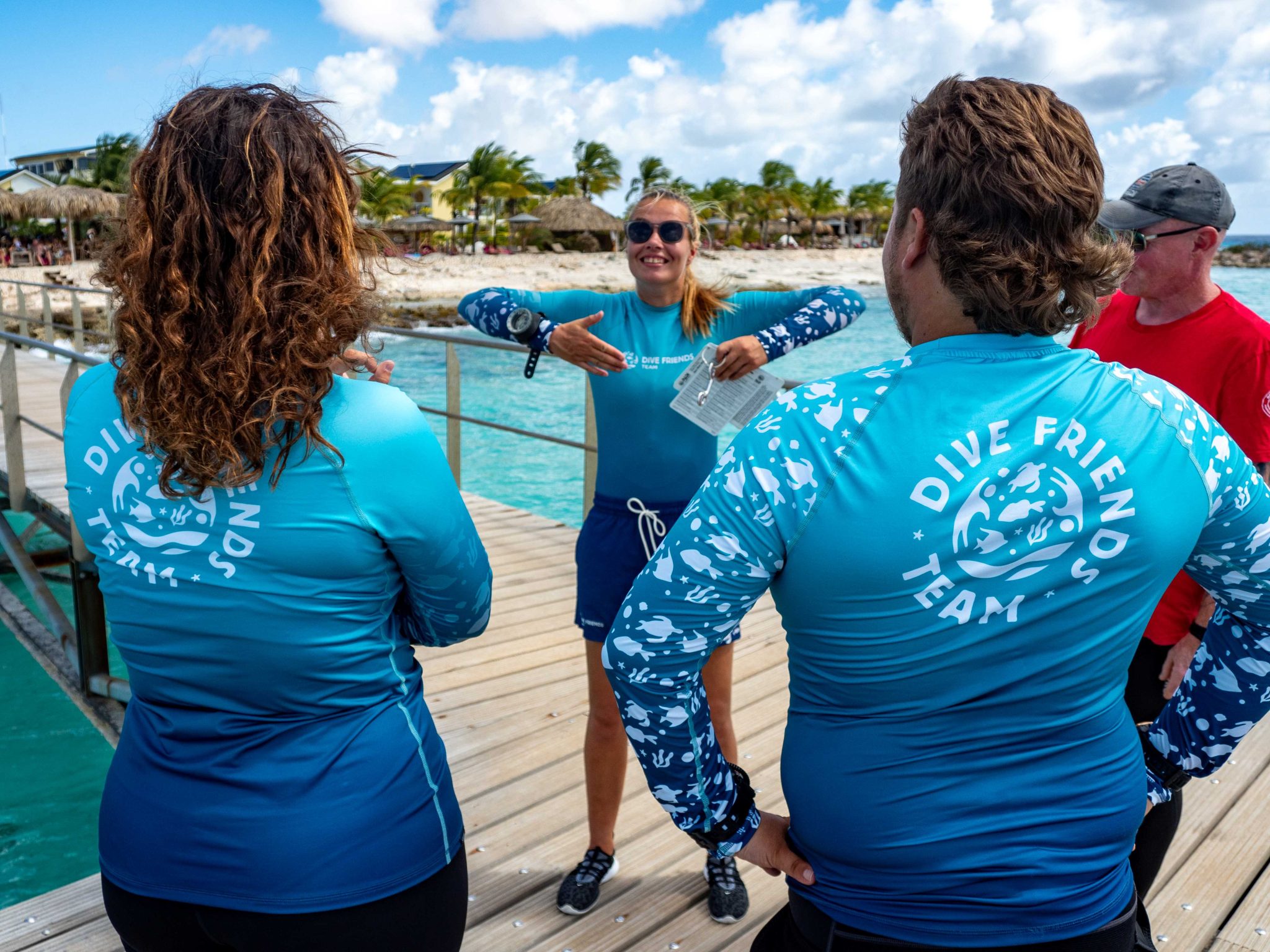
Dive Friends teaches the Instructor Development Course (IDC) several times a year to students who are eager to share their passion for diving with the world.
Dive Friends is known for the personal approach throughout the course. Their in-house course director will lead the students through every essential step, mentoring them to achieve their fullest potential as a dive instructor.
Applications for the following IDC start dates are now open:
- 12 April
- 5 July,
- 20 September
- 29 November
Partnership with Casita Palma
If the student opts for the IDC-Deluxe or IDC-Supreme package, their accommodation will be arranged for them at Casita Palma. This small and quiet resort is within walking distance from Dive Friends Bonaire’s main dive shop location and has everything you need to relax after an intense day of IDC training. Breakfast is included, so the student will always be fuelled and ready for their day.
Contact Dive Friends Bonaire’s Course Director Eddy for more information: coursedirector@divefriendsbonaire.com.
-

 News3 months ago
News3 months agoHone your underwater photography skills with Alphamarine Photography at Red Sea Diving Safari in March
-

 News3 months ago
News3 months agoCapturing Critters in Lembeh Underwater Photography Workshop 2024: Event Roundup
-

 Marine Life & Conservation Blogs3 months ago
Marine Life & Conservation Blogs3 months agoCreature Feature: Swell Sharks
-

 Blogs2 months ago
Blogs2 months agoMurex Resorts: Passport to Paradise!
-

 Blogs2 months ago
Blogs2 months agoDiver Discovering Whale Skeletons Beneath Ice Judged World’s Best Underwater Photograph
-

 Marine Life & Conservation2 months ago
Marine Life & Conservation2 months agoSave the Manatee Club launches brand new webcams at Silver Springs State Park, Florida
-

 Gear Reviews3 months ago
Gear Reviews3 months agoGear Review: Oceanic+ Dive Housing for iPhone
-

 Gear Reviews2 weeks ago
Gear Reviews2 weeks agoGEAR REVIEW – Revolutionising Diving Comfort: The Sharkskin T2 Chillproof Suit


